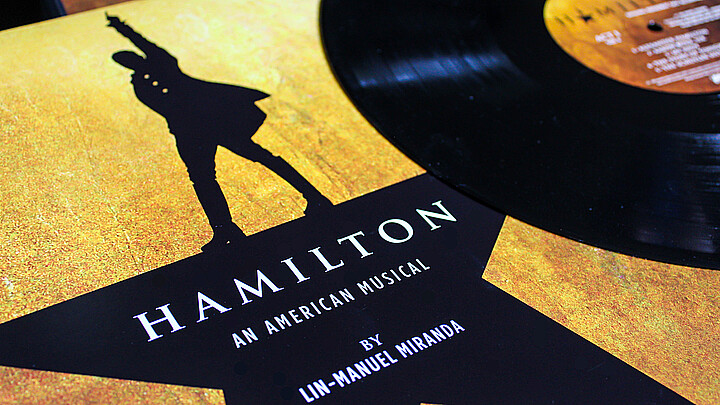Culture
Puerto Rican Afro-Caribbean community argues it needs legal protection against hairstyle discrimination
In the continental United States, Texas and least 23 other states have passed a version of what has been labeled as the CROWN Act, which stands for “Create a Respectful and Open World for Natural Hair.”

January 26, 2024 9:12am
Updated: July 26, 2024 7:53am
Puerto Rican legislators are debating a new bill aiming to ban discrimination against ethnic hairstyles such as Afros and cornrows.
Opponents of the new proposed legislation say it’s overreaching because local and federal laws already prohibit such discrimination, but island activists said at a hearing this week that those laws were inadequate.
Such protections are inherent in Title VII of the 1964 Civil Rights Act, but the 11th Circuit U.S. Court of Appeals ruled in 2016 that an Alabama employer’s policy forbidding dreadlocks did not violate the law.
In that lawsuit, the EEOC complained that laws prohibiting ethnic hairstyles violated Title VII and said that dreadlocks are a “racial characteristic” that have been used throughout history as a way to unfairly classify African Americans as “not team players.”
The lawsuit asserted that certain hairstyle bans “physiologically and culturally associated” with African Americans were discriminatory.
But the 11th Circuit disagreed and ruled that “race-neutral grooming” policies were not discriminatory simply because they were “culturally associated with race.” The appellate court said that to receive such protections, such traits must be “immutable physical characteristics” such as skin color or something that cannot be changed.
As a result, of that ruling Puerto Rico’s Afro-Caribbean community is arguing it needs more specific codified legal protection from discrimination, citing incidents of prejudice in the workplace, education, housing, and other public services.
During a Jan. 23 hearing, Puerto Rico Sen. Ana Irma Rivera Lassén, who has also co-authored the bill, said she didn't understand the position of her opponents.
“What is the problem with adding explicit protection?" she asked.
Some activists, such as Puerto Rican university student Alanis Ruiz Guevara, tried to evidence the need for the bill by citing specific examples of discrimination.
In Ruiz Guevara’s case, she said she was fighting for new legislation with the added protections specifically because of the U.S. appellate court ruling that excludes protections for hairstyles.
Puerto Rican author Mayra Santos-Febres is also on the list of cheerleaders for the bill.
“All of this legal work is so important because it creates a protocol that is needed now,” she said. “We need tools to defend ourselves from systemic racism.”
One teacher, Julia Llanos Bultrón, who wears cornrows, said she has faced adverse treatment as a result of her hairstyle.
“I’m 23 years old, and I’m tired of this problem,” she said. “I’m very disappointed with a system that pushes us to change the hair with which we’re born.”
As evidence of her plight, Llanos said that a Fajardo school conditionally offered her employment only on the basis she cut her hair.
Others with similar stories spoke at the hearing, which was set at El Palacio De Las Leyes, San Juan’s Capitol building, which has been a home to the island’s House of Representatives and Senate for nearly a century since 1929.
In the continental United States, Texas and least 23 other states have passed a version of what has been labeled as the CROWN Act, which stands for “Create a Respectful and Open World for Natural Hair.”
The CROWN Act has been passed in Democratic states such as California and Republican states such as Texas. It prohibits hairstyle discrimination in the realm employment, housing, education, and public accommodation.
On March 18, 2022, the House of Representatives passed a federal version of the bill, but it died in the U.S. Senate.
“This bill prohibits discrimination based on a person's hair texture or hairstyle if that style or texture is commonly associated with a particular race or national origin. Specifically, the bill prohibits this type of discrimination against those participating in federally assisted programs, housing programs, public accommodations, and employment,” H.R. 2116 from the 117th Congress reads.
“Persons shall not be deprived of equal rights under the law and shall not be subjected to prohibited practices based on their hair texture or style.”
Some government officials in the Caribbean also have been pushing to relax hair codes at schools, workplaces and government offices.
While some states have passed the CROWN Act, some local communities are not adhering to the law. One such community is in in Belvieu, Texas.
There, the family of a Black high school student, Darryl George, is arguing his August 2023 suspension is in violation of state law.
The school has argued that the issue is the length of George’s hair because it falls below his ear lobes and eyebrows.
On the island, Lorraine León Ramírez, whose two sons who have Afros, said her youngest was told he was suspended from school until he cut his hair.
“It was one of the worst experiences we’ve had as a family,” she said.
“The big question is, is it fair that our children have to grow up with regulations that undermine their identity? The answer is no,” she said. “It’s time to break these stigmas.”
More than 1.6 million people in the U.S. territory of 3.2 million identify as being of two or more races, while nearly 230,000 identify solely as Black, according to the U.S. Census.










